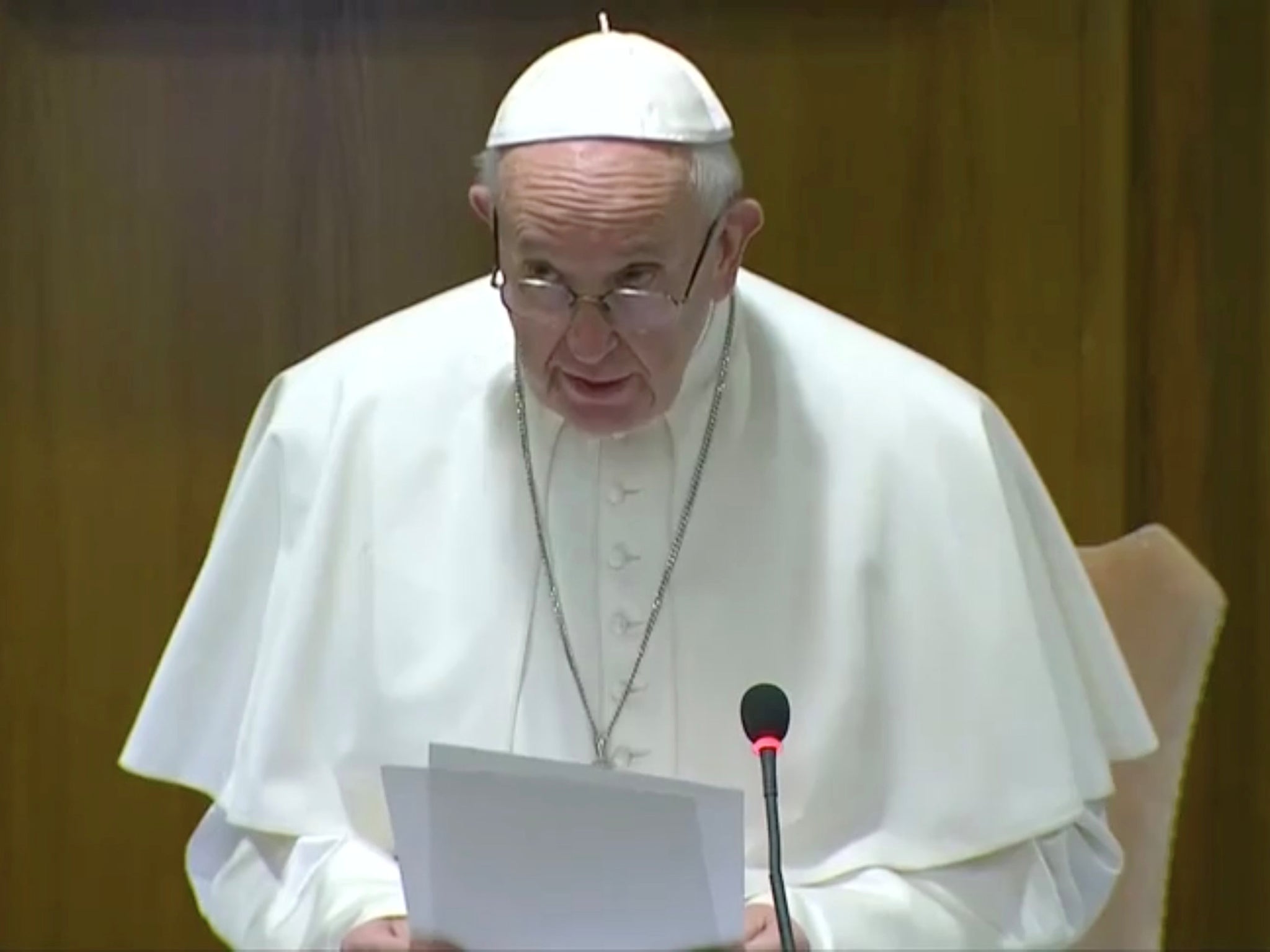Pope Francis promises 'concrete action' against sexual abuse by Catholic priests
Comments come as Catholic leaders from around world gather for extraordinary summit to address scandals rocking church

Your support helps us to tell the story
From reproductive rights to climate change to Big Tech, The Independent is on the ground when the story is developing. Whether it's investigating the financials of Elon Musk's pro-Trump PAC or producing our latest documentary, 'The A Word', which shines a light on the American women fighting for reproductive rights, we know how important it is to parse out the facts from the messaging.
At such a critical moment in US history, we need reporters on the ground. Your donation allows us to keep sending journalists to speak to both sides of the story.
The Independent is trusted by Americans across the entire political spectrum. And unlike many other quality news outlets, we choose not to lock Americans out of our reporting and analysis with paywalls. We believe quality journalism should be available to everyone, paid for by those who can afford it.
Your support makes all the difference.Pope Francis has promised that "concrete action" will be taken against child sexual abuse by Catholic priests during an extraordinary summit of bishops in Rome.
The pope convened Catholic leaders from around the world for the four-day meeting to address the scandals that have ravaged the church's credibility in the US, Ireland, Chile, Australia, and elsewhere over the last three decades.
His opening remarks appeared aimed at countering scepticism among victims who said the meeting looked like a public relations exercise.
“Faced with the scourge of sexual abuse committed by men of the church against minors, I wanted to reach out to you,” Pope Francis told the assembled bishops and heads of religious orders.
He asked them to “listen to the cry of the little ones who are seeking justice”.
Pope Francis, opening the conference of nearly 200 participants in a Vatican auditorium, added that victims deserve “concrete and efficient measures” and not mere condemnations.
Victims were mixed in their response, with some expressing cautious optimism and others saying it was too little, too late.
Cardinal Rubén Salazar Gómez of Bogota said the damage was home-grown, in large part because bishops had closeted themselves in a clerical mentality and some thought they could act with impunity.
“The first enemies are within us, among us bishops and priests and consecrated persons who have not lived up to our vocation,” he said
“We have to recognise that the enemy is within.”
The pope and the participants watched a video of five victims, most of whom wished to remain anonymous, telling painful stories of abuse and cover-up.
“From the age of 15 I had sexual relations with a priest,” a woman said.
"This lasted for 13 years. I got pregnant three times and he made me have an abortion three times, quite simply because he did not want to use condoms or contraceptives.”
Juan Carlos Cruz, a Chilean, said on the video that when he reported abuse to religious authorities he was treated as a liar and an enemy of the Church.
“You are the physicians of the soul and yet, with rare exceptions, you have been transformed – in some cases – into murderers of the soul, into murderers of the faith,” he said.
“What a terrible contradiction.”
Cardinal Luis Tagle of the Philippines broke into tears as he read a keynote speech that acknowledged: “Wounds have been inflicted by us, the bishops, on the victims”.
A list of 21 “reflection points” written by the pope was handed out. The first was that each diocese should have a “practical handbook” on steps to be taken when cases emerge.
They included actions such as informing civil authorities of substantial accusations in compliance with local law and making sure non-clerics are involved in church investigations of abuse.
“Putting together a handbook after all this time is laughable,” said Peter Isely, who was abused by a priest as a boy and now heads the advocacy group Ending Clergy Abuse.
Most of the 21 points are already practiced in countries like the United States.
In Ireland, the sexual abuse scandal shattered the power of the Church which four decades ago dominated society. In the past four years, voters approved abortion and gay marriage, defying the Vatican.
In Chile, all of the country's bishops offered their resignations to the pope last year over a widespread cover-up. Pope Francis accepted seven of the resignations and dismissed two others from the priesthood.
A report by a grand jury in Pennsylvania last year revealed that priests had sexually abused about 1,000 people over seven decades in that US state alone.
Before the conference started, some victims' groups said the event was an attempt to cleanse the image of the 1.3 billion-member Church.
But Anne Barrett-Doyle of bishopaccountablity.org, which tracks abuse cases around the world, said she was pleasantly surprised by the pope's opening remarks.
“They said this was going to just be a teaching session, but he is now talking about concrete measures. That's good, but let's see how it ends up,” she told Reuters.
Reuters
Join our commenting forum
Join thought-provoking conversations, follow other Independent readers and see their replies
Comments